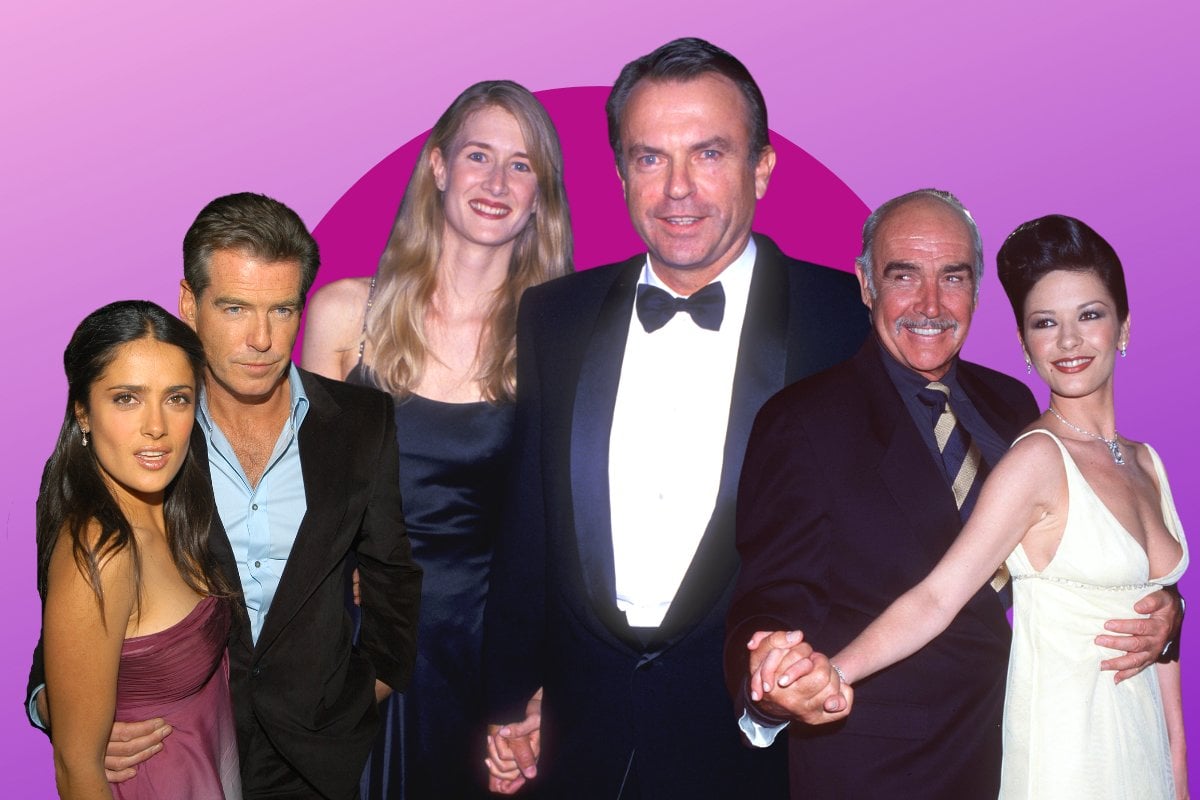
Recently, the internet began foaming at the mouth about a 30-year-old film.
The 'foaming at the mouth thing' is not unusual for social media. Neither is the re-examining of a classic.
This time, its sights were set on Jurassic Park, the beloved dinosaur blockbuster with a huge pop culture cachet and a much loved cast, including Jeff Goldblum, Sam Neill and Laura Dern.
The internet's issue? Well, it had flown under the radar for years that on-screen love interests botanist Dr. Ellie Sattler (Dern) and paleontologist Dr. Alan Grant (Neill) had a 19-year age gap in real life.
The original Jurassic Park film came out in 1993. Neill was in his 40s, while Dern was in her 20s.
It raised no eyebrows - not even their own - until recently.
"I am 20 years older than Laura! Which at the time was a completely appropriate age difference for a leading man and lady," Neill, 74, told The Sunday Times in a May 2022 interview. Dern is now 55.
"It never occurred to me until I opened a magazine and there was an article called 'Old geezers and gals.' People like Harrison Ford and Sean Connery acting with much younger people. And there I was, on the list. I thought, 'Come on. It can't be true'."
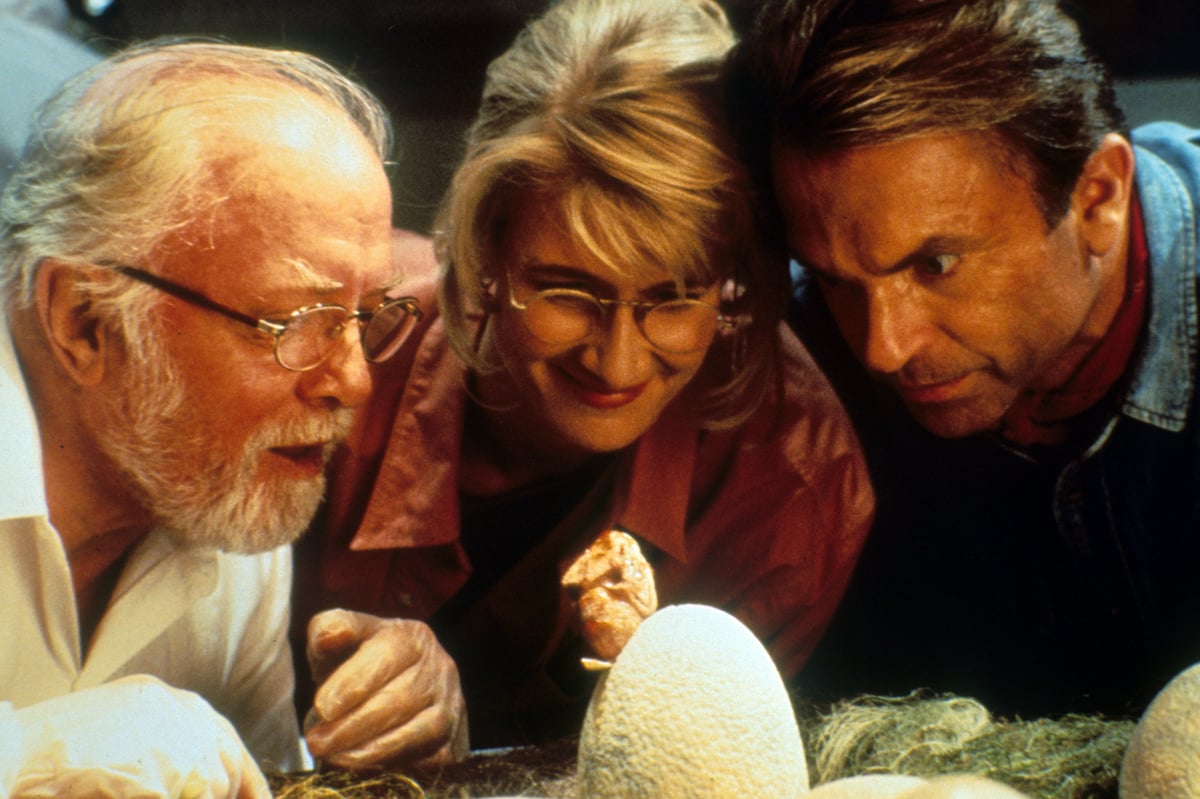 Image: Getty.
Image: Getty.
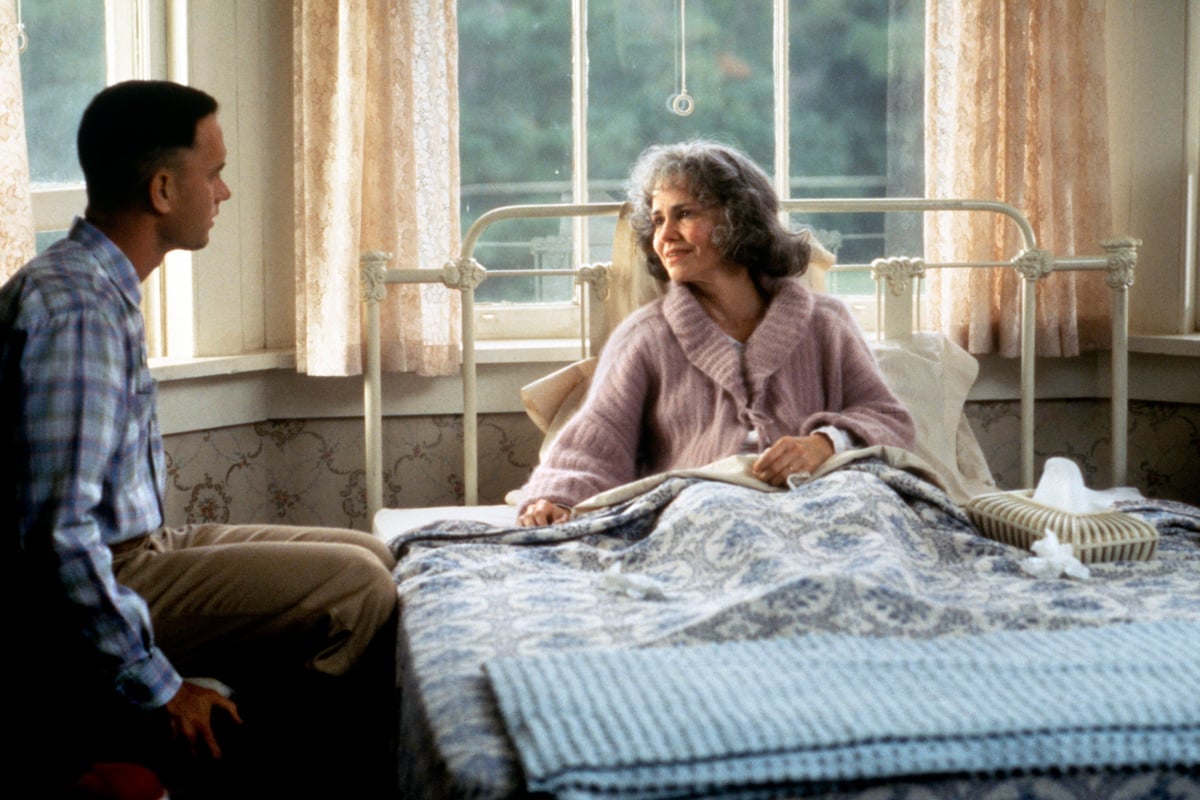
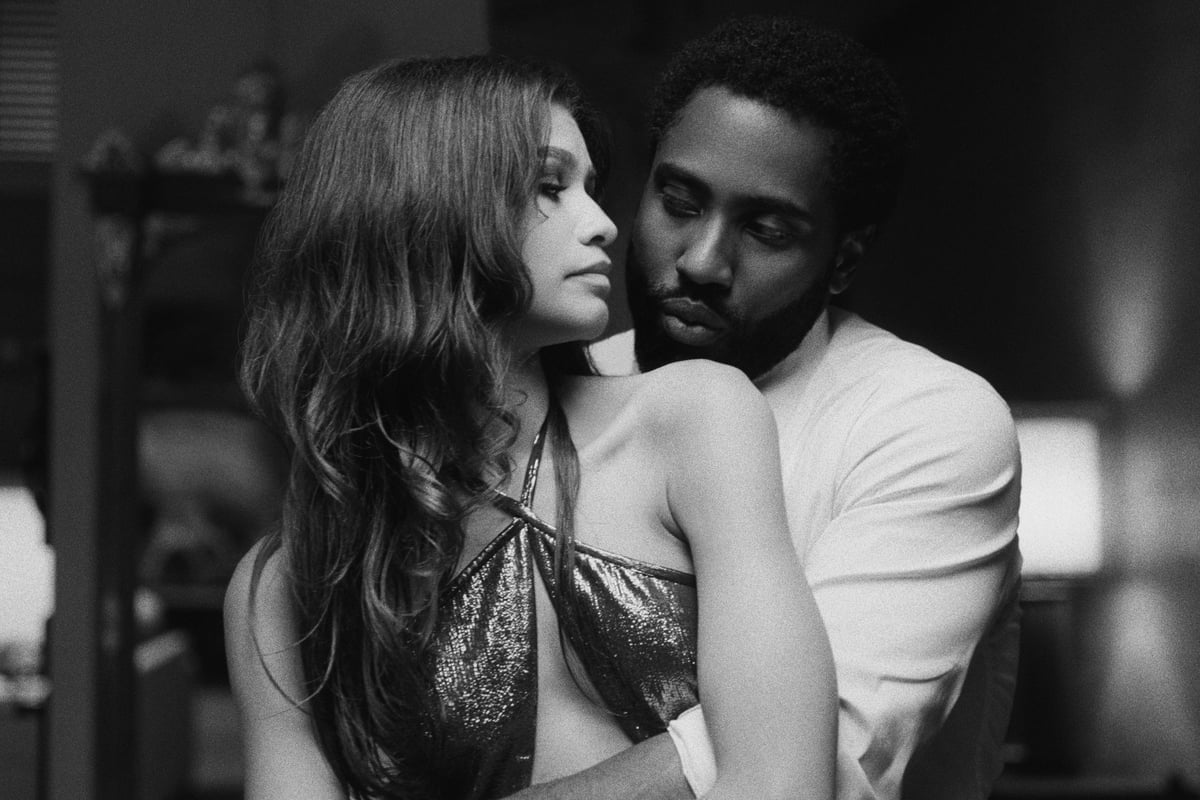
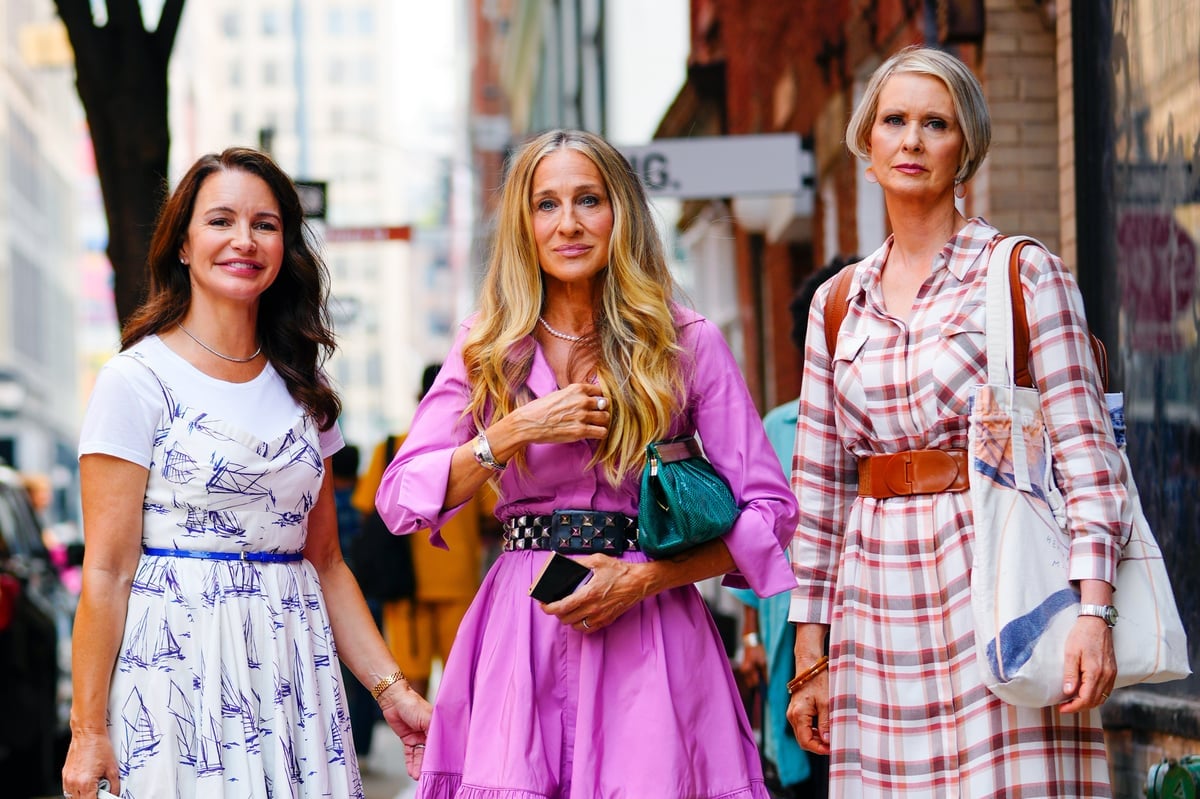
Top Comments